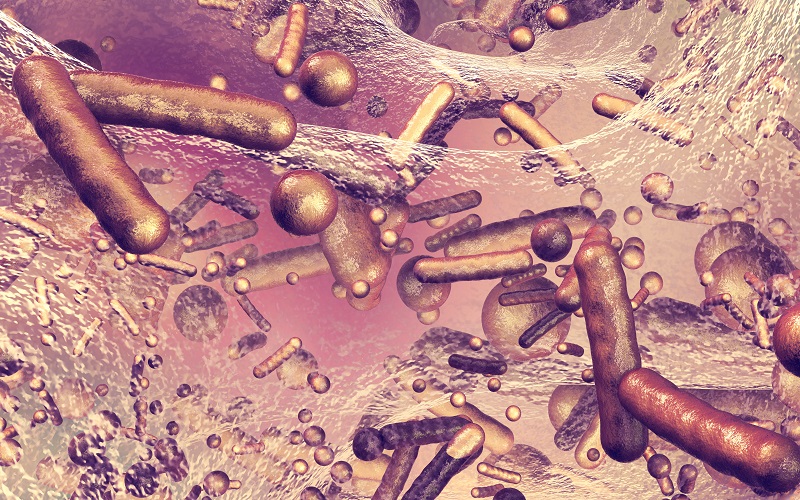Invisible to the naked eye, bacteria cover every inch of our bodies and even live inside us, forming communities known as microbiomes. Many of these microorganisms are essential to health. For instance, probiotics in the gut facilitate the release of nutrients from food and prevent harmful bacteria from taking up residence in the intestines.
“It is well accepted that the human microbiome influences many aspects of host physiology, including activities in sterile, extraintestinal organs such as the brain and joints. It is unclear, however, how microbes in the gut and on the skin exert a systemic effect,” said Yue Wang, a Research Director at A*STAR’s Institute of Molecular and Cell Biology (IMCB).
In collaboration with colleagues in China and the Netherlands, Wang’s team sought to understand the influence that bacteria exert on the overall, or systemic, immune response of the body. They homed in on the molecule peptidoglycan (PGN), a major component of the bacterial cell wall.
To confirm that the microbiome is the main source of blood PGN, the researchers compared PGN levels between microbiota-colonised mice and antibiotic-treated or germ-free mice, which have minimal to no microbiota. They observed that microbiota-colonised mice had significantly higher PGN levels compared to antibiotic-treated and germ-free mice.
The team then embedded an osmotic pump under the skin of normal mice to release PGN, raising the blood PGN levels of treated mice to four to eight times that of control mice. Elevated blood PGN levels resulted in more severe autoimmune arthritis, as demonstrated by greater paw swelling as well as cartilage erosion in treated mice compared to control mice.
Seeking to counter the PGN-mediated autoimmune disease, the researchers injected mice with a monoclonal antibody called 2E7 that binds to and neutralises circulating PGN. 2E7-treated mice experienced less severe autoimmune disease compared to control mice, hinting at the therapeutic potential of this approach.
Nonetheless, Wang noted that bacteria produce many forms of PGN subunits which get processed into a variety of products in the body. “Therefore, it is necessary to determine the forms of PGN subunits in circulation and their biological activities,” he explained.
“We also want to modify 2E7 for use in humans. We plan on carrying out large-scale clinical studies to establish a link between the concentration and forms of circulating PGN with immune-mediated disease,” he added.
The A*STAR-affiliated researchers contributing to this research are from the Institute of Molecular and Cell Biology (IMCB) and the Bioprocessing Technology Institute (BTI) and the Singapore Immunology Network (SIgN).






